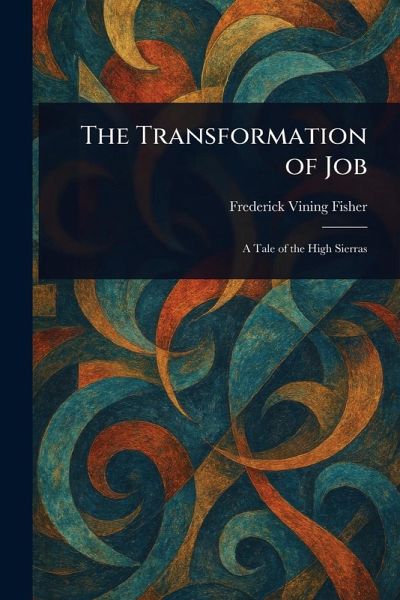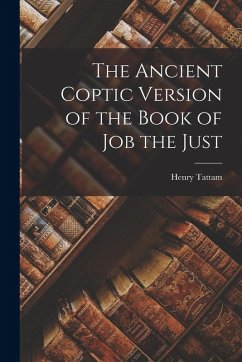
The Transformation of Job

PAYBACK Punkte
9 °P sammeln!
"The Transformation of Job: A Tale of the High Sierras" by Frederick Vining Fisher transports readers to the rugged wilderness of the Sierra Nevada in this classic work of Western and Literary Fiction. Set against the backdrop of California and Nevada's towering peaks, this powerful story explores themes of redemption and spiritual transformation. Through vivid prose and compelling storytelling, Fisher weaves a narrative that delves into the human spirit's capacity for change. The book offers a glimpse into a bygone era, capturing the essence of the American West and the challenges faced by th...
"The Transformation of Job: A Tale of the High Sierras" by Frederick Vining Fisher transports readers to the rugged wilderness of the Sierra Nevada in this classic work of Western and Literary Fiction. Set against the backdrop of California and Nevada's towering peaks, this powerful story explores themes of redemption and spiritual transformation. Through vivid prose and compelling storytelling, Fisher weaves a narrative that delves into the human spirit's capacity for change. The book offers a glimpse into a bygone era, capturing the essence of the American West and the challenges faced by those who sought solace and meaning in its vast landscapes. "The Transformation of Job" remains a testament to the enduring power of faith and the possibility of finding grace in even the most unforgiving environments. A meticulously prepared print republication of a historical text. This work has been selected by scholars as being culturally important, and is part of the knowledge base of civilization as we know it. This work is in the public domain in the United States of America, and possibly other nations. Within the United States, you may freely copy and distribute this work, as no entity (individual or corporate) has a copyright on the body of the work. Scholars believe, and we concur, that this work is important enough to be preserved, reproduced, and made generally available to the public. We appreciate your support of the preservation process, and thank you for being an important part of keeping this knowledge alive and relevant.














